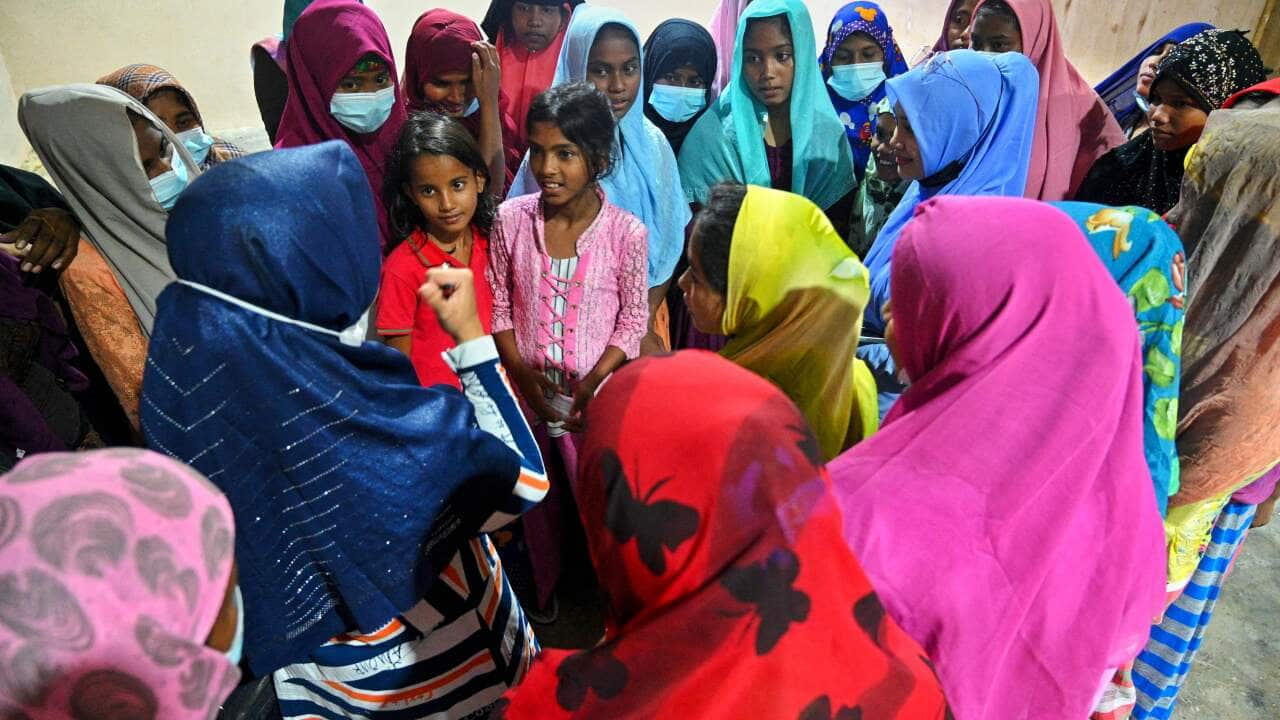In Cox's Bazar, the healing power of play is used for children who have made the world's largest refugee settlements their home.
An international development program based in Bangladesh, Building Resources Across Communities (BRAC) established learning spaces for 3,500 Rohingya mothers and children, using simple games to foster play, art and learning.
Involved in 17 of the 34 camps in the settlement, the so-called "humanitarian play labs" have changed the lives of mothers and children who fled persecution in Myanmar in 2017.
A study led by Monash University's business school has found the mental health of children and mothers significantly improved after engaging in these play-based programs for a year.
One program was created for children under the age of two, to help mothers play with each other and their children in conducive ways, using basic household items such as pillows and clay-based trinkets that were handmade by mothers.

Children aged between two and six engage in play with one another and their carers, fostering early childhood education in their Rohingya language. Source: Supplied / Monash University
Simple language games played in one-hour sessions between Rohingya mothers weekly found that those who had fled violent and traumatic events in Myanmar and in the camps benefited most from the intervention.
"It's important that mothers and children get this kind of environment, particularly because they come from backgrounds where they fled emotional and physical torture," lead researcher of the project at Monash University Asad Islam said.
In 2017, Myanmar militia launched a deadly crackdown on the Rohingya people, forcing a mass exodus of refugees out of the country.
Rohingya people are one of many minority ethnic groups in Myanmar — formerly Burma — who are predominantly Muslim.
Myanmar is a majority-Buddhist nation that refuses to recognise the Rohingya ethnic group, denying them citizenship and excluding them from the 2014 census.
The deadly onslaught of Rohingyas has been described as "the textbook example of ethnic cleansing" by former high commissioner of United Nations' Human Rights Zeid Ra‘ad al-Hussein.
Government troops have been accused of burning down community villages in Rakhine, where the Rohingya were predominantly based, raping women and firing shots at police posts.

Rohingya children learn through cultural art, language and games together with BRAC carers. Source: Supplied / Monash University
More than half the refugees are women, and 55 per cent of them are children, many of whom have settled in the world's largest refugee resettlement, Cox's Bazar in Bangladesh's southeast.
“Poor mental health of adult refugees, particularly among mothers, is considered a risk factor for the psychological well-being and development of their children,” Professor Islam said.
He has visited the camp before and described the conditions as "very poor and congested", with difficult access to water and hygiene resources.
But beyond the trauma, there is hope for greater psychological and physical development, especially among children, according to Professor Islam.
He said the study found that not only did children register a significant reduction in trauma and depression a year after participating in the program, but their speech, gross motor skills, and problem-solving abilities had also all improved.
Following its success, Monash University and BRAC are working to expand the program to 13,500 mothers and children in the camps.










